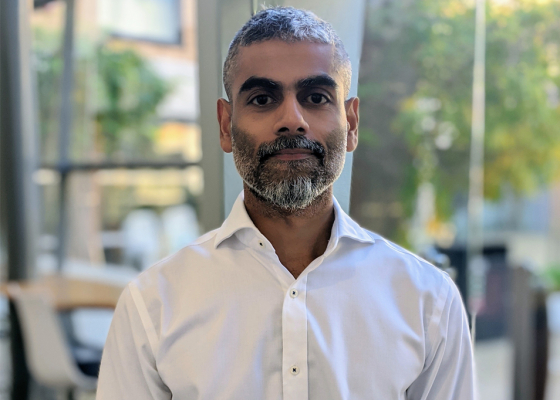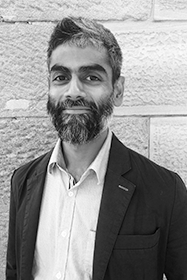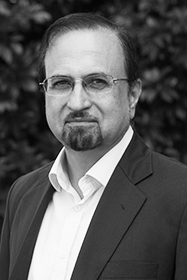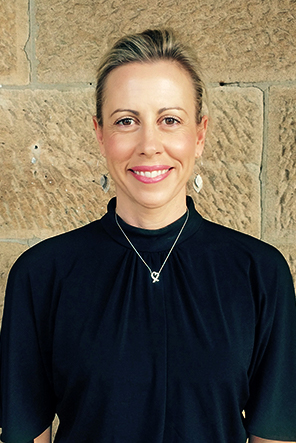HEIDI DOUGLASS | h.douglass@unsw.edu.au
Research Fellow and Senior Lecturer Dr Adith Mohan at UNSW Sydney’s Centre for Healthy Brain Ageing (CHeBA) has been awarded a Mindgardens Neuroscience Network Translational Research Grant to establish an intervention clinic for patients with Functional Neurological Symptom Disorders.
The Australian-first clinic will provide multi-disciplinary assessment together with an intervention program for suitable patients.
Dr Mohan, who is also a Consultant Neuropsychiatrist at the Neuropsychiatric Institute, Prince of Wales Hospital, said that the research-ready clinic will see participants referred from their GP or specialist.
Such a clinic is not currently available in Australia in the public sector and bridges a significant gap in care-provision for a vulnerable group with high rates of physical and mental health morbidity, disability and healthcare needs.
Dr Adith Mohan
“It will bring together clinical experts from neuropsychiatry, neurology, rehabilitation medicine, physiotherapy, occupational therapy and psychology for the first time,” said Dr Mohan.
Functional Neurological Symptom Disorders (FND) are a common and potentially reversible cause of neuropsychiatric disability. The disorders have an estimated incidence of 4-12 per 100,000 people per annum amounting to 200-300 new patients diagnosed with FND per year in New South Wales alone. Patients with FND commonly present to neurology and neuropsychiatry clinics with a variety of motor, sensory and cognitive symptoms including paralysis, tremor, and seizure-like episodes.
The disorder is most prevalent in young to middle-aged adults the majority of whom are women, with more than a third remaining out of the workforce, and a quarter requiring disability support.
Poor healthcare experiences for people with FND are commonplace, and have a negative impact on health care utilisation, symptom persistence and overall prognosis.
There is a lack of coordinated service provision for FND in NSW and Australia, hindering efforts to systematically collect clinical data that can be translated into gold-standard practice and shape policy development.
Both Dr Mohan and Professor Perminder Sachdev, fellow research investigator and neuropsychiatrist, have been at the forefront of tertiary care and clinical research in neuropsychiatry for three decades. Having fostered significant collaborative care partnerships across the disciplines of neurology, clinical neuroscience, rehabilitation medicine and neuropsychology, the Neuropsychiatric Institute is an ideal home for a tertiary clinic to operate.
Professor Sachdev who is Co-Director of CHeBA and Director of the Neuropsychiatric Institute, says the goal is to create and evaluate a model for gold-standard, evidence-based care provision for FND in Australia.
According to Professor Sachdev, a specialist FND clinic is best placed to provide care to people with FND in a cost-effective way.
This study clinic will provide early and accurate post-diagnostic care and contribute to upskilling health-care staff and improve health literacy in relation to the management of FND in emergency, inpatient and outpatient settings, critical to sustainable practice change and policy development.
Professor Perminder Sachdev
The funding will also allow for close examination of the health care utilisation impact of their clinical model seeking to guide cost-effective funding initiatives for FND. Further, the clinical research team aims to develop a hub of expertise in the field which in time will lead them to focus on capacity building in FND across regional and remote centres in New South Wales, utilising a clinician-to-clinician telehealth consultation model currently utilised within the Neuropsychiatric Institute.
Dr Mohan said the team will include clinical staff from the departments of neurology – Professor Somerville, Dr Hanka Laue-Gizzi and Dr Christian Zentner, and rehabilitation medicine - Dr Peter Sturgess, as well as private sector neurology - Dr Katherine Spira. Dr Adam Bayes and Associate Professor Vijaya Manicavasagar have expertise in psychotherapeutic intervention for individuals with a history of developmental trauma, a significant proportion of whom present with FND. Professor Richard Kanaan, who will guide outcome measurement and key performance indicators for the clinic, is a world-renowned clinical researcher in FND. Dr Katherine Gill, founder and president of FND support services, will guide development of occupational therapy services to several people with FND. As a person with lived experience of FND, she also brings a consumer-centric focus to the clinical program and future translation into secondary and private care settings.
Together, our project team represents a unique group of passionate collaborators with the clinical and academic expertise needed for successful implementation of this project and the sustainable translation of clinic outcomes into mainstream practice in the secondary and primary care settings.
Dr Adith Mohan
Mindgardens is an organisation that focuses on building clinical excellence, research capacity and education with the specific aim to improve patient outcomes. The grant applications were reviewed by a panel of experts, including people with lived experience, researchers and clinicians.




